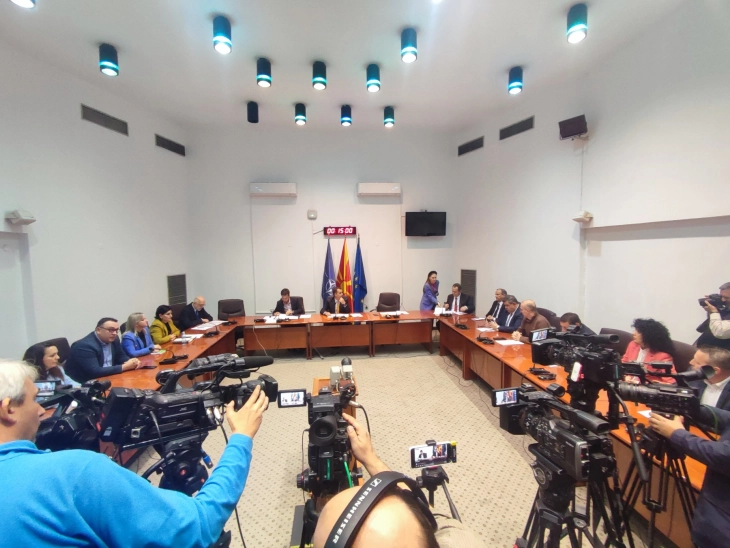Kovachevski calls parliamentary committee supervising the work of NSA to hold a meeting on ‘Onyshchenko’ case

Skopje, 26 November 2022 (MIA) – PM Dimitar Kovachevski called upon the parliamentary committee supervising the work of the National Security Agency (NSA) and the Intelligence Agency to finally hold a meeting on the “Onyshchenko” case and the Ministry of Interior to complete the investigation as soon as possible regarding how a closed session of the parliamentary committee was broadcast live.
“I want to call the parliamentary committee to finally hold a meeting on this case because I see that there is an attempt that was rather poorly organized and also the Ministry of Interior should complete as soon as possible the investigation regarding how a closed session of the parliamentary committee was broadcast live. However, for everything that concerns the Parliament, I really cannot suggest and I cannot participate in making decisions there because the Parliament is holder of legislative power,” Kovachevski said during his visit to cooking oil factory “Brilijant” in Shtip.
He reminded that the Government in its closed session adopted a conclusion by which it obliged the relevant institutions in the country to start activities to revoke the granted citizenship of Ukrainian national Oleksandr Onishchenko.
The procedure, as he stated, will be based on the legal regulations and as soon as it is implemented, that is, when the activities are done, then the relevant institutions will be able to inform about it.
“A lot of details were discussed at that closed session. Considering that you know that the Government's decision was made based on all the positive opinions from all the institutions that should give an opinion, the information was shared by the NSA Head. I cannot say more than that, since sharing information about closed government sessions is a serious offense punishable by one to five years in prison,” Kovachevski added.







